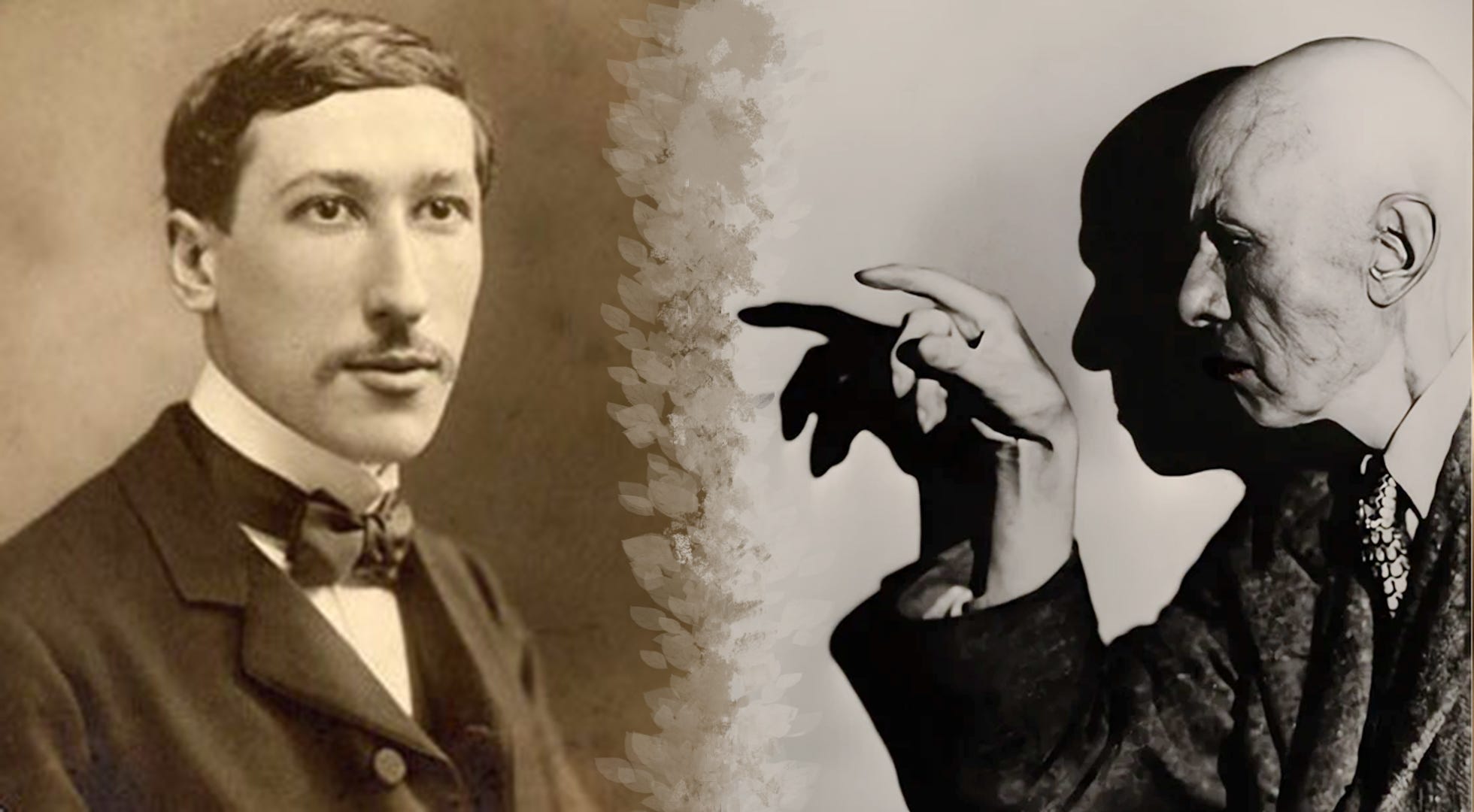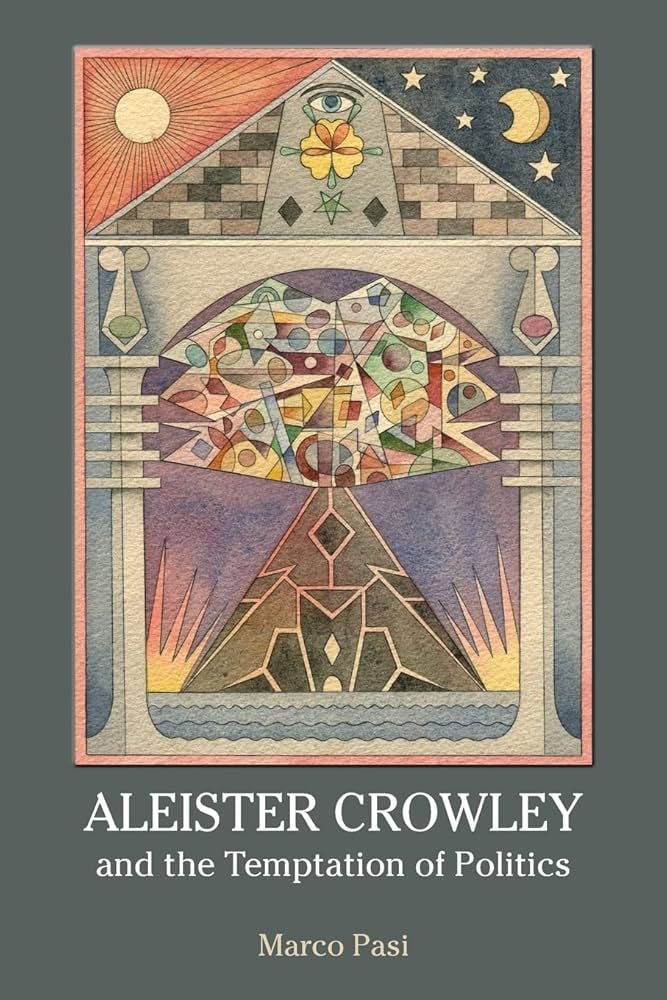In recent years, certain segments within contemporary occult circles have sought to align Aleister Crowley’s philosophy of Thelema with the Traditionalist thought associated with René Guénon and Julius Evola.
Often motivated by far-right political ideologies, these proponents argue that Thelema inherently resonates with Traditionalist principles, attempting to legitimize their political agendas through spiritual means.
Prominent figures like the late James Wasserman openly advocated reactionary interpretations of Crowley’s work. Less prominent yet equally troubling cases include extremist initiatives such as the attempted establishment of an "Iron Youth Camp" in Baton Rouge and explicitly "völkisch" commentaries on Liber AL vel Legis. These fringe groups typically mask their extremist ideologies behind the facade of spiritual authenticity, seeking to appropriate and reshape Thelema according to their reactionary perspectives.
Recently, this problematic trend resurfaced in online forums such as the Thelema subreddit—critically labeled by some as "the lost layer of Hell"—where discussions featured content by known white nationalist figures such as Greg Johnson. These developments reflect not a sincere engagement with Crowley’s original teachings but rather a deliberate and troubling attempt at ideological co-option.
Crowley’s Personal Views vs. Thelemic Philosophy
It is crucial to distinguish clearly between Crowley’s personal political attitudes and the essential philosophical tenets of Thelema. While Crowley himself occasionally expressed conservative, elitist, and aristocratic views, these stances should not be mistaken as representative of the underlying spiritual message found in the foundational texts of Thelema.
In his fundamental text, Aleister Crowley’s and the Temptation of Politics, scholar Marco Pasi notes how Crowley’s political and social beliefs were intricate, varied, and at times paradoxical. Although he often criticized modern societal values, expressed skepticism toward democracy, and admired Nietzschean elitism, his engagements with various political ideologies—from conservative movements to radical ones like fascism and communism—were driven primarily by pragmatic opportunism and a romantic desire for rebellion, rather than adherence to a coherent Traditionalist philosophy.
Fundamental Differences from Traditionalism
The central teachings of Thelema, particularly as articulated in its foundational text, Liber AL vel Legis, fundamentally diverge from Traditionalist philosophy. At its core, Thelema emphasizes radical individualism, embodied in the maxim, "Every man and every woman is a star." This statement highlights the intrinsic uniqueness, autonomy, and spiritual sovereignty of each individual, foregrounding personal spiritual exploration and self-realisation. Such a profoundly individualistic outlook stands in clear opposition to Traditionalism, which emphasizes conformity to external, predetermined metaphysical hierarchies and advocates for the revival and strict adherence to historical religious and societal orders.
Traditionalists like Guénon and Evola advocate a return to an idealized ancient cosmic order, viewing hierarchical structures as inherently sacred, immutable, and divinely ordained. By contrast, Thelema explicitly rejects externally imposed hierarchies, instead promoting continuous spiritual evolution, personal liberation, and the exploration of individual potential. Crowley saw traditional moral systems—especially those derived from Christianity—as restrictive, oppressive, and obstacles to genuine spiritual freedom.
Marco Pasi explicitly asserts that Crowley did not embody a genuinely traditionalist or anti-modern outlook, characterizing his mental framework instead as largely positivist and modern. Pasi argues that "the spiritually and socially subversive aspect of his proposed religion would certainly hold no appeal for traditionalists".
Hierarchy in Thelema?
Crowley’s conception of hierarchy within Thelema further differentiates it from Traditionalist thought. For Guénon and Evola, hierarchy was considered an eternal, divinely sanctioned cosmic order. Crowley, however, approached hierarchy symbolically and metaphorically, emphasizing its initiatic rather than societal significance. Within Thelema, hierarchical distinctions reflect progressive stages of spiritual initiation, stressing individual freedom, autonomy, and personal responsibility in the pursuit of enlightenment.
Some may argue that the initiatic structure outlined by Crowley in the O.T.O.’s foundational document, Liber 194, suggests a hierarchical social model akin to the caste systems advocated by Evola.
Liber 194 indeed outlines an initiatic hierarchy, placing the "Man of Earth" grade in a position analogous to the plebeians in ancient Rome. However, this analogy overlooks a critical distinction: Crowley explicitly envisioned this hierarchy as a dynamic and spiritually meritocratic system. Liber 194 clearly articulates that individuals are encouraged and expected to ascend through spiritual progression. Each initiate begins as a servant to higher Triads but is actively expected and encouraged to advance spiritually, ultimately becoming part of the elite higher initiatic circles themselves. Thus, unlike the rigid and immutable caste systems embraced by Traditionalists, Crowley’s hierarchy emphasizes meritocracy based on spiritual progression.
Practically, however, the idealistic hierarchy described in Liber 194 has never been genuinely implemented within the contemporary O.T.O.
Despite various attempts at reconstruction, the modern "Caliphate" O.T.O. has neither actualised nor approached the envisioned initiatic and societal structure proposed by Crowley. Additionally, it has struggled to develop the necessary caliber of initiates to lead such a transformative structure. Consequently, Crowley’s hierarchical model remains primarily theoretical—a utopian ideal rather than a practical, functioning framework.
Conclusion
Despite superficial similarities and Crowley’s occasional personal conservative attitudes, the essential philosophical and spiritual teachings of Thelema remain distinct and fundamentally irreconcilable with Traditionalism.
Marco Pasi emphasises that Crowley’s own approach was inherently modern, characterised by an openness to experimentation and a willingness to break from past traditions in pursuit of spiritual advancement. He points out that Thelema, as conceptualized by Crowley, inherently rejects traditionalist appeals to conformity and established hierarchies:
“For all that Crowley may have had some idiosyncrasies in this regard, it appears that he more or less consistently endeavored to keep these personal attitudes separated from the universal value of his religious message. It should therefore be emphasized that, even if it is not too difficult to find sexist or racist statements in Crowley’s writings, there does not seem to be an intrinsic anti-Semitic or racist component in Thelema.”
Furthermore, it is increasingly necessary for Thelemites today to move beyond endless speculation about what Crowley himself might have intended or desired. Crowley lived and died over a century ago, his worldview deeply influenced by the cultural, social, and political realities of his time.
What remains vital and enduring is not Crowley's personality or specific historical attitudes but the living spiritual philosophy of Thelema itself, as codified in its Holy Books. Contemporary adherents must focus on interpreting and applying Thelema's enduring message—radical individual freedom, personal spiritual exploration, and self-realization—in ways relevant to the modern world.
Ultimately, authentic Thelema, independent of Crowley’s historical persona, unequivocally rejects alignment with Traditionalist perspectives and calls for continual spiritual growth and the realization of individual potential.








One of your best analysis efforts I've read. Thank you.
To understand Thelemic politics you need to be familiar with Claire Graves work on Value systems, and his “Spiral Dynamics” model. The Lena is what comes next.